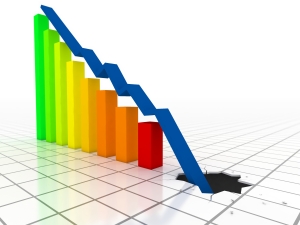Diet Crystal Pepsi. Frito Lay Lemonade. Watermelon Oreos. Through the years, the shelves of stores have been filled with products that turned out to be flops, failures, duds, and losers. But some people are drawn to these products again and again, a study finds—so much so that their buying activity may signal that a product is doomed.
Diet Crystal Pepsi. Frito Lay Lemonade. Watermelon Oreos. Through the years, the shelves of stores have been filled with products that turned out to be flops, failures, duds, and losers.
But some people are drawn to these products again and again, a study finds—so much so that their buying activity may signal that a product is doomed.
The same group of consumers has an outsized tendency to purchase all kinds of failed products, according to the published study by two Massachusetts Institute of Technology professors. The study calls these people “harbingers of failure” and suggests they provide a new window into consumer behavior.
“They keep on buying products that are [later] taken from the shelves,” said Catherine Tucker, a professor of marketing at the university and a co-author.
These star-crossed consumers sniff out flop-worthy products of all kinds, she added. It’s “a cross-category effect,” she explained. “If you’re the kind of person who bought something that really didn’t resonate with the market, say, coffee-flavored Coca-Cola, then that also means you’re more likely to buy a type of toothpaste or laundry detergent that fails to resonate with the market.”
And while strong initial sales of products normally seem like a good thing, the research indicates it’s not always so—not if it’s the harbingers of failure who are snapping up the items.
“It’s not just how many people are buying them, it’s how many of the right people are buying them and how many of the wrong people aren’t buying them,” said Duncan Simester, another co-author of the study, and also a marketing professor.
“Usually when you’re doing market research, the common wisdom is that people liking your product is a good thing,” Tucker adds. “But what we’ve done in this research is identify a group of people who you really want to [have] hate your product. And that changes the paradigm of market research.”
The study drew on two large data sets from a large chain of convenience stores that reaches across the U.S. All told, the researchers ended up examining 77,744 customers who purchased 8,809 new products between 2003 and 2005, and then tracking the data longer to see how well those products fared. They defined a failed product as one pulled from stores less than three years after its introduction; only about 40 percent of the new products survived that long.
The researchers studied consumers whose purchases flop at least 50 percent of the time, and saw pronounced effects when these harbingers of failure buy products. When the percentage of total sales of a product accounted for by these consumers increases from 25 to 50 percent, the probability of success for that product decreases by 31 percent. And when the harbingers buy a product at least three times, it’s really bad news: The probability of success for that product drops 56 percent.
But why do these people buy the doomed products?
“You could think of it as preference for risk,” Simester said. “People who are more willing to take a risk on an unusual product are more willing to take a risk in multiple categories.”
The researchers also examined and ruled out other possible explanations of the phenomenon. For instance: The harbingers are not evidently any more tired or distracted than anyone else when choosing products.
“It’s not the case that these people are buying goods at 2 in the morning, or something like that,” Tucker said. “They’re not inattentive. Systematically, they are able to identify these really terrible products that fail to resonate with the mainstream.”
Some of the authors say they themselves have purchased doomed products. Tucker, for example, used to drink Crystal Pepsi. “This paper may be slightly autobiographical,” she said.










